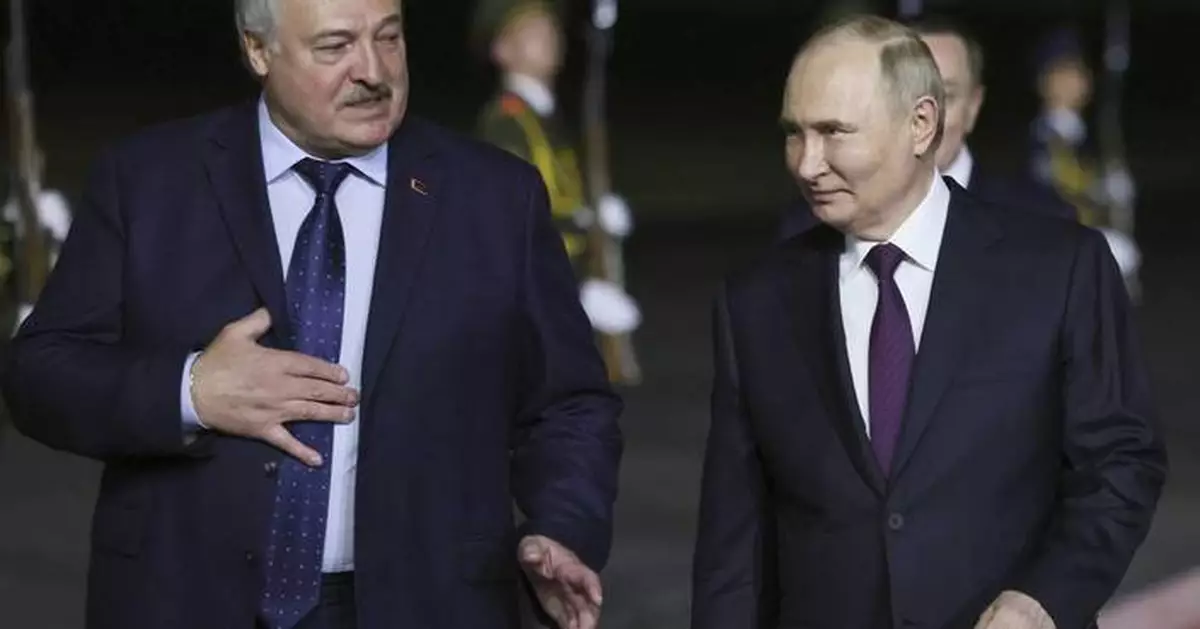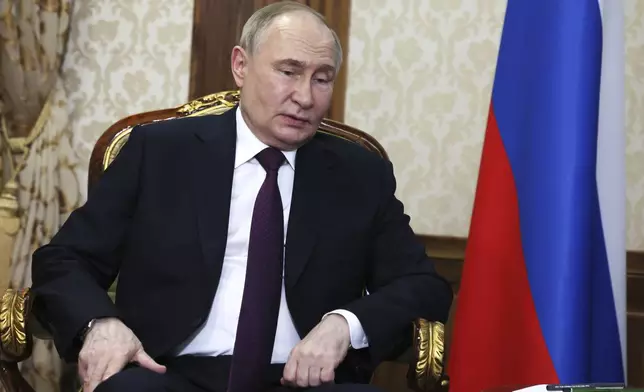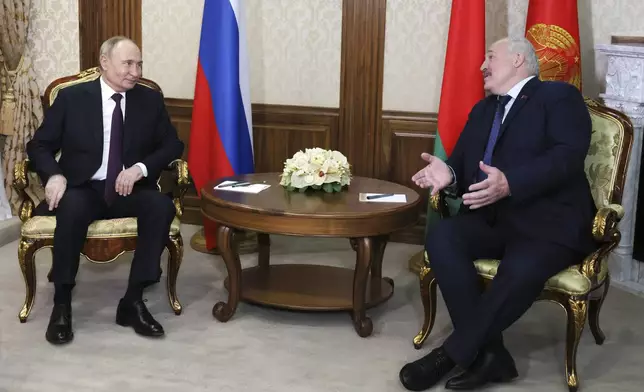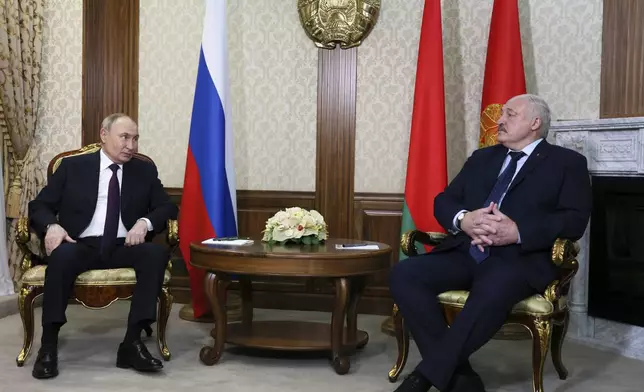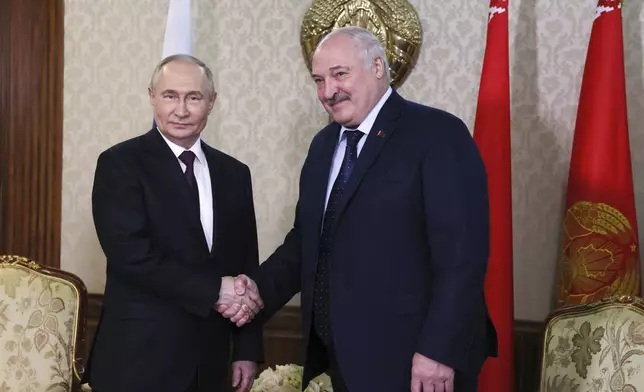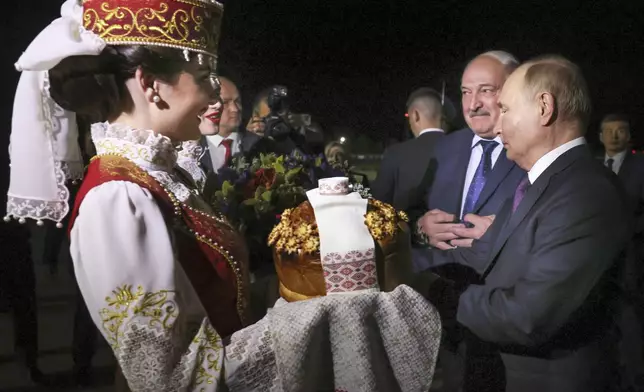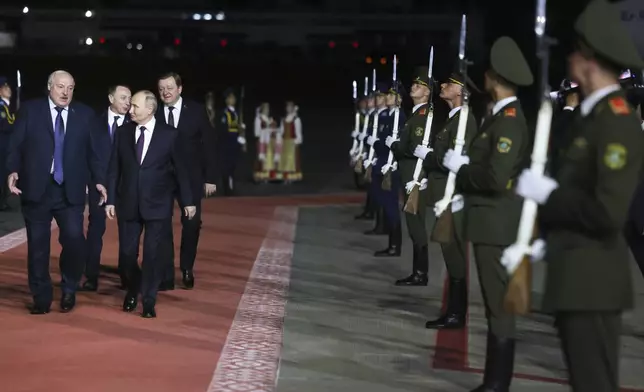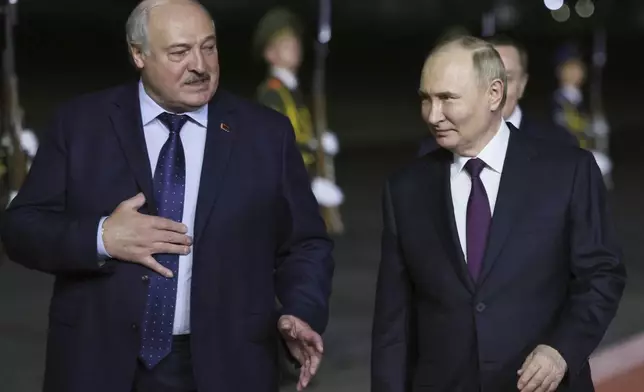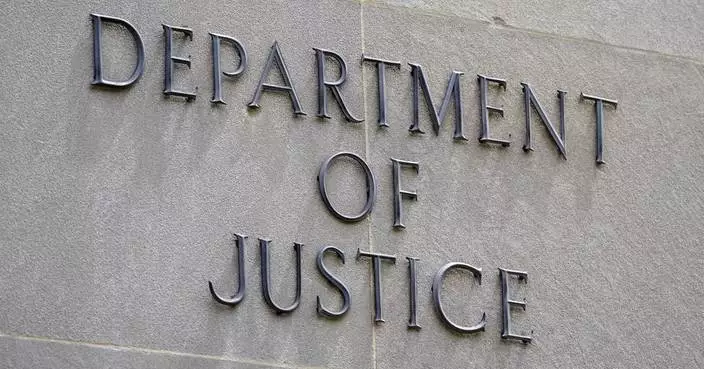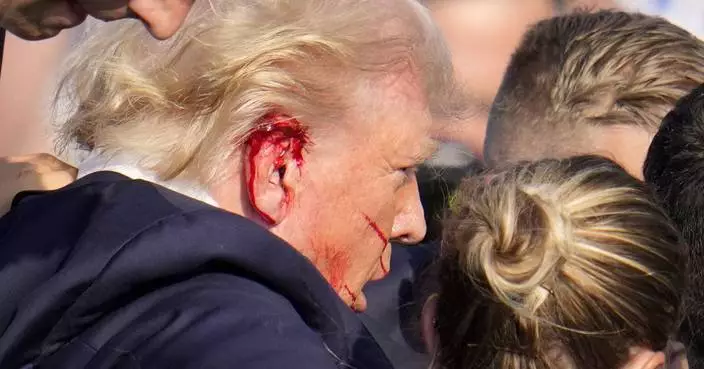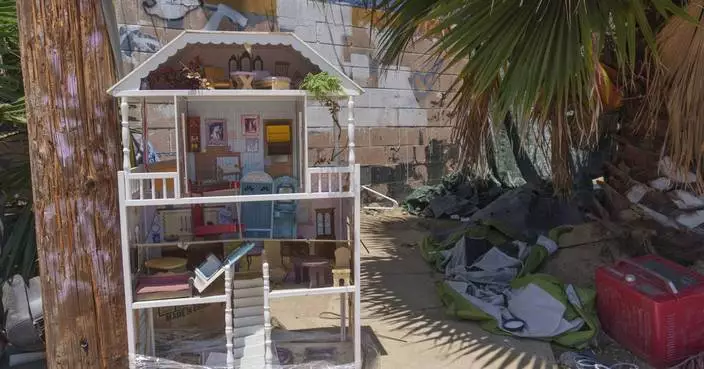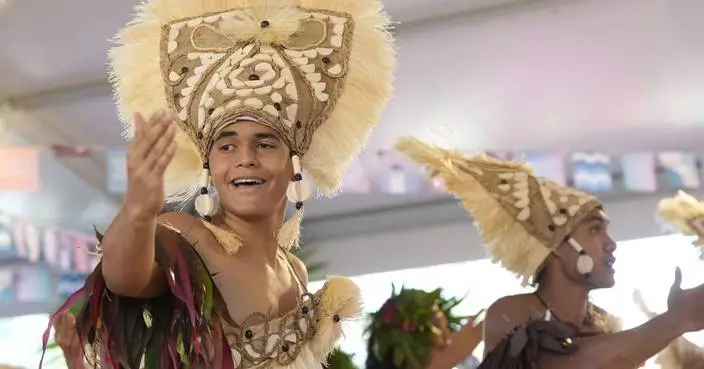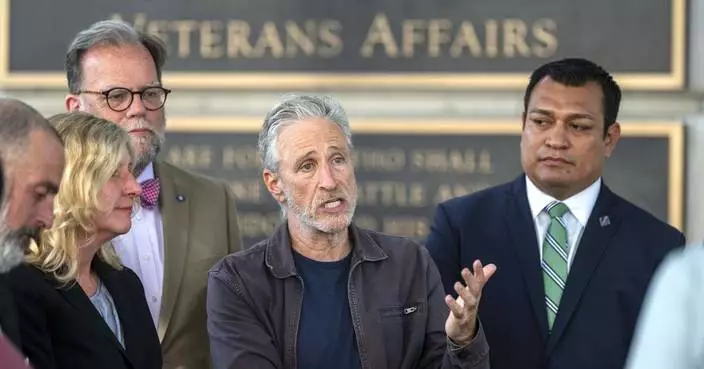Russian President Vladimir Putin arrived Thursday in Belarus for a two-day visit as part of several foreign tours to kick off his fifth term in office, underscoring close ties with a neighboring ally that has been instrumental in Russia's war effort in Ukraine.
Putin traveled to China earlier this month, and is expected in Uzbekistan on Sunday. Earlier on Thursday, the Russian president hosted Bahrain's King Hamad bin Isa Al Khalifa in the Kremlin.
In Belarus, Putin is to hold talks with his Belarusian counterpart Alexander Lukashenko. Lukashenko greeted him on the tarmac, and then the two sat down for a “short conversation” at the airport, the Kremlin reported. Lukashenko promised to discuss “security issues at the forefront, and tomorrow we will discuss economic issues together with our colleagues from the governments.”
The Belarusian leader on Thursday appointed a new chief of the country's military general staff in a move that analysts say is aimed at showing the Kremlin the utmost loyalty of its neighbor and ally.
Russia used Belarus, which depends on Russian loans and cheap energy, as a staging ground in the war in Ukraine, deploying some of its troops there from Belarusian territory. In 2023, Russia also moved some of its tactical nuclear weapons to Belarus.
Maj. Gen. Pavel Muraveyka, who was appointed as chief of Belarus' General Staff and as first deputy defense minister, is known for publicly threatening neighboring NATO members Poland and Lithuania.
In October 2023, he said that Belarus could seize the so-called Suwalki Gap — a sparsely populated stretch of land running about 100 kilometers (60 miles) along the Polish-Lithuanian border. It links Lithuania, Latvia and Estonia with the rest of the NATO alliance and separates Belarus from Kaliningrad, a heavily militarized Russian exclave on the Baltic Sea that has no land connection to Russia.
Military analysts in the West have long viewed the Suwalki Gap as a potential flashpoint in any confrontation between Russia and NATO. They worry that Russia might try to seize the gap and cut off the three Baltic states from Poland and other NATO nations.
“Muraveiko’s appointment is an open challenge to the West and a desire to show Putin Minsk’s complete loyalty and willingness to maintain a strategic partnership with Russia,” independent Belarusian analyst Valery Karbalevich told The Associated Press.
“The deployment of Russian nuclear weapons in Belarus does not leave Lukashenko a strategic choice, turns him into a hostage of the Kremlin and firmly binds Minsk to Moscow’s policies," Karbalevich said.
Both Russia and Belarus began military drills involving tactical nuclear weapons earlier this month. Moscow said its drills, announced publicly for the first time on May 6, were a response to statements by Western officials signaling possibly deeper involvement in the war in Ukraine. Belarus launched its maneuvers involving missiles and warplanes capable of carrying tactical nuclear weapons on May 7; Russia's exercises began this week.
Moscow has emphasized that the tactical nuclear weapons deployed to Belarus remain under Russian military control.
Unlike nuclear-tipped intercontinental ballistic missiles that can destroy entire cities, tactical nuclear weapons intended for use against troops on the battlefield are less powerful. Such weapons include aerial bombs, warheads for short-range missiles and artillery munitions.
The deployment of tactical nuclear weapons to Belarus, which has a 1,084-kilometer (673-mile) border with Ukraine, would allow Russian aircraft and missiles to reach potential targets there more easily and quickly if Moscow decides to use them. It also extends Russia’s capability to target several NATO allies in Eastern and Central Europe.

Russian President Vladimir Putin speaks to Belarusian President Alexander Lukashenko during their meeting upon his arrival at an international airport in Minsk, Belarus, Thursday, May 23, 2024. (Mikhail Metzel/Sputnik/Kremlin Pool Photo via AP)

Russian President Vladimir Putin, left, and Belarusian President Alexander Lukashenko talk to each other during their meeting at an international airport in Minsk, Belarus, Thursday, May 23, 2024. Putin arrived in Belarus Thursday for a two-day visit. (Mikhail Metzel/Sputnik/Kremlin Pool Photo via AP)

Russian President Vladimir Putin, left, and Belarusian President Alexander Lukashenko talk to each other during their meeting at an international airport in Minsk, Belarus, Thursday, May 23, 2024. Putin arrived in Belarus Thursday for a two-day visit. (Mikhail Metzel/Sputnik/Kremlin Pool Photo via AP)

Russian President Vladimir Putin, left, and Belarusian President Alexander Lukashenko shake hands during their meeting at an international airport in Minsk, Belarus, Thursday, May 23, 2024. (Mikhail Metzel/Sputnik/Kremlin Pool Photo via AP)

Russian President Vladimir Putin, right, and Belarusian President Alexander Lukashenko, second right, attend a welcome ceremony upon his arrival at an international airport in Minsk, Belarus, Thursday, May 23, 2024. (Mikhail Metzel, Sputnik, Kremlin Pool Photo via AP)
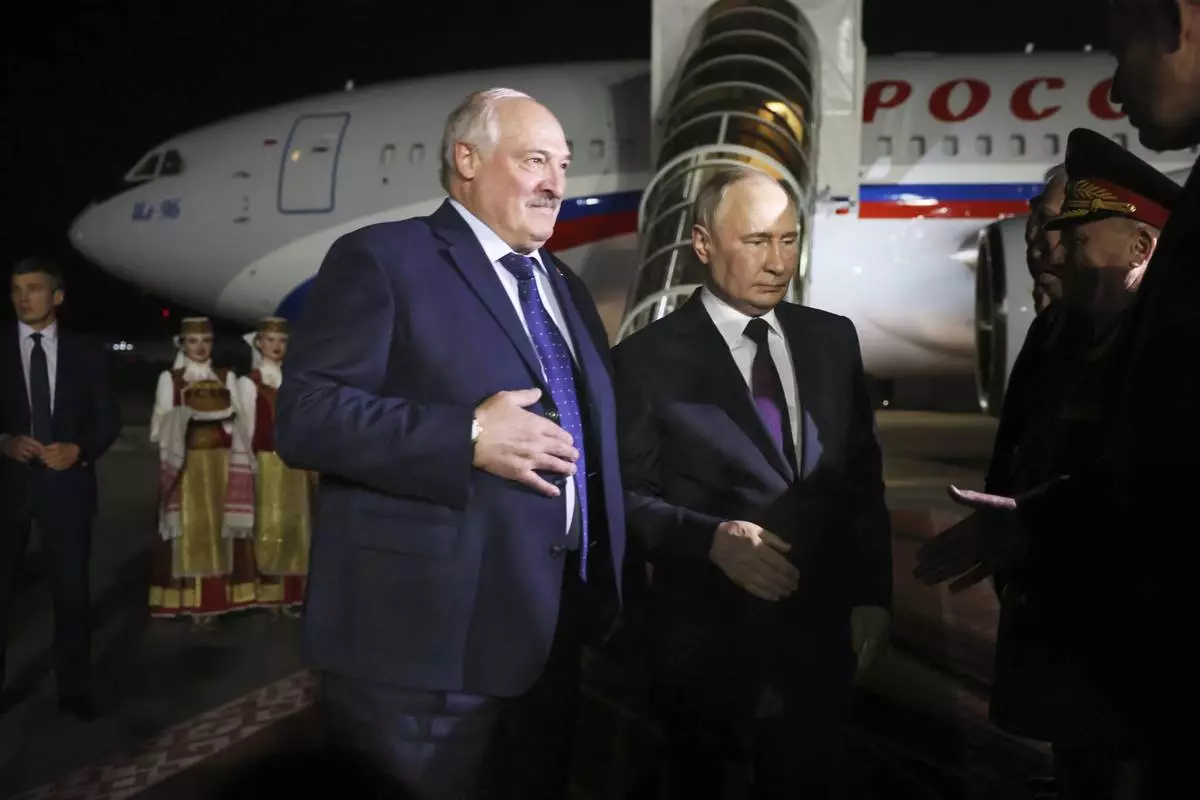
Russian President Vladimir Putin, right, and Belarusian President Alexander Lukashenko walk from a plane at an international airport in Minsk, Belarus, Thursday, May 23, 2024. (Mikhail Metzel, Sputnik, Kremlin Pool Photo via AP)

Russian President Vladimir Putin, right, listens to Belarusian President Alexander Lukashenko, as they review an honor guard upon his arrival at an international airport in Minsk, Belarus, Thursday, May 23, 2024. Putin on Thursday evening arrived in Belarus for a two-day visit. (Mikhail Metzel, Sputnik, Kremlin Pool Photo via AP)
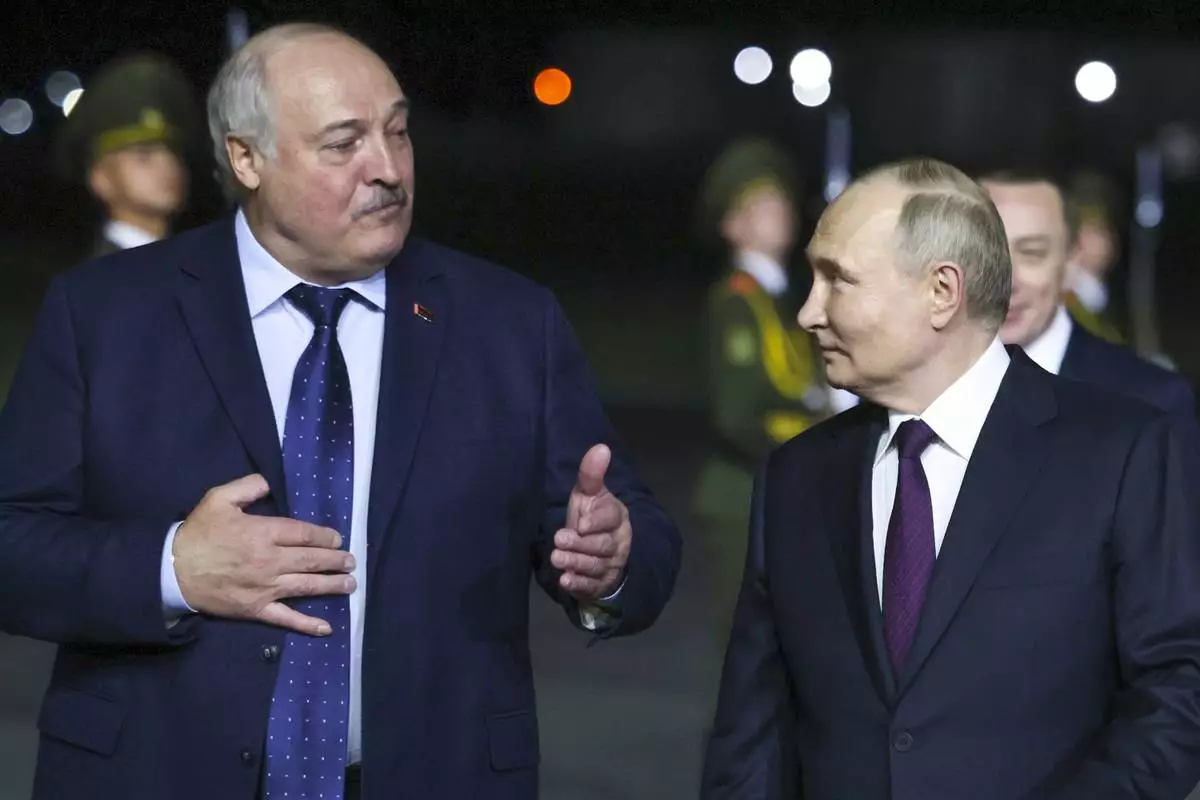
Russian President Vladimir Putin, right, listens to Belarusian President Alexander Lukashenko as they walk upon his arrival at an international airport in Minsk, Belarus, Thursday, May 23, 2024. (Mikhail Metzel, Sputnik, Kremlin Pool Photo via AP)

Russian President Vladimir Putin, right, listens to Belarusian President Alexander Lukashenko as they walk upon his arrival at an international airport in Minsk, Belarus, Thursday, May 23, 2024. (Mikhail Metzel, Sputnik, Kremlin Pool Photo via AP)


